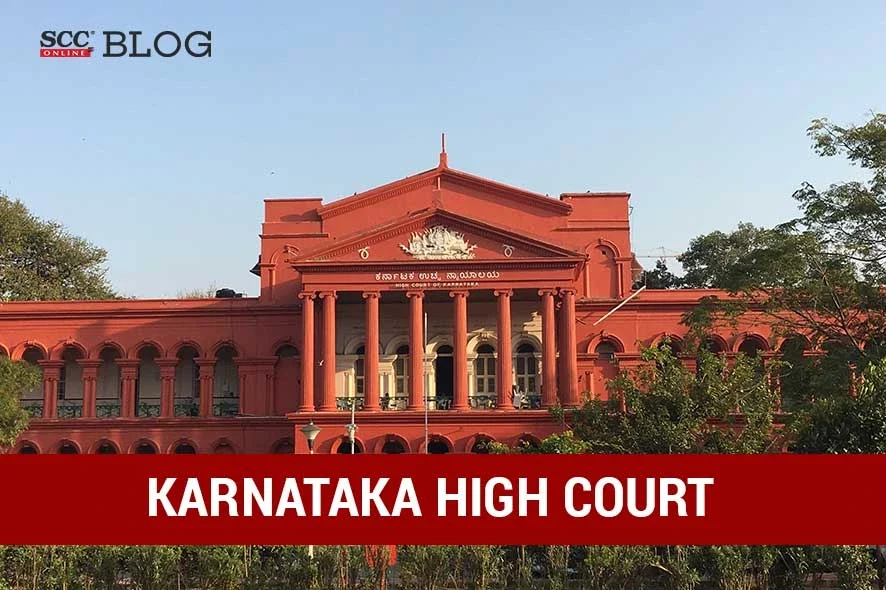Karnataka High Court: While considering the instant petition seeking the writ of Mandamus to direct the respondent hospital to admit the petitioner and take the necessary steps to terminate her pregnancy, the bench of Suraj Govindaraj, J.*, pointed out that most of the time when a sexual assault victim specially minor express their desire to terminate the pregnancies arising out of sexual offences, the gestation period in many such cases crosses the permissible period of 24 weeks after which any delay requires permission by the Court and other procedures, thereby subjecting the victim to intense mental trauma. To avoid this very trauma to the victim and her family members, the Court thus deemed it fit to pass elaborate directions in this regard.
-
On registration of a sexual offence under Section 376 of Penal Code, 1860 or under the POSCO Act, immediately a medical examination of the victim be made to ascertain amongst others if she is pregnant or not, if so the gestation period to be ascertained, the physical and mental status of the victim, the ability to undergo the medical termination of the pregnancy, any aggravating factors and/or factors which will impinge upon the health and wellbeing of the victim.
-
In the event of the victim is found to be pregnant, the Child Welfare Committee and/or District Child Protection Unit, is to be informed of the same by the Investigation officer, who in turn are directed to counsel/advice the victim and her family members of the legal options which are available like the continuance of the pregnancy and consequences thereof, the termination of the pregnancy, the process, procedure and consequences thereof etc.
-
Afore-stated counselling is to be carried out in a language known to the victim, if necessary, by making use of suitable translators. All questions asked by the victim and her family members are to be answered in a language known and understood by them so that there is no miscommunication.
-
In the event of Medical Termination of Pregnancy being carried out the tissue samples of the foetus to be sent to the Forensic Science laboratory for and DNA analysis, if possible to preserve additional samples for verification if required.
-
Follow up checks to be done to ascertain the physical and mental well- being of the victim.
-
Director General of Police along with the Principal Secretary Health, Government of Karnataka, to get prepared a detailed Standard Operating Procedure by constituting such committee of experts as they deem fit, in respect of the above and circulate it amongst all investigating officers, Child Welfare Committees, District Child Protection Units, government hospitals, as also provide necessary training to the authorities concerned.
-
The Legal services authority must take into account the surrounding factors and release such compensation as permissible to the victim and her family for her immediate requirements.
The accused person the in the instant case took the 17-year-old petitioner away from her parents’ house and committed several acts of sexual intercourse with her while promising to marry her and also telling her to reveal his name to anyone.
The petitioner became pregnant and by the time the investigating officers found her and conducted her medical examination, it was found that she was pregnant with live intra uterine foetus of 24 weeks + 2 days.
The petitioner was hospitalised, and it was her and her natural guardian’s wish that she terminates the pregnancy and requested the doctors to do the same. However, the pregnancy having crossed 24 weeks and being beyond the limits prescribed under Rule 3B of Medical Termination of Pregnancy Rules, 2003, the petitioner was asked to approach the High Court.
The petitioner had submitted that if she were to continue with the pregnancy, she would not be able to study and that she would not be able to mingle in the society which would affect her both physically and psychologically and that she does not wish to continue the unwanted pregnancy.
The Court in its previous order had constituted a Medical Board in terms of Section 3(2C) of the Medical Termination of Pregnancy Act, 1971. The said Committee submitted a report stating that, there would be no harm or injury which would be caused to the petitioner if the said procedure is performed. The basic parameters of the petitioner were stated to and found to be normal.
Perusing the afore-stated report, the Court thus considered the petitioner’s request favourably stating that the petitioner being of the tender age of 17 years, would not be able to take care of the child when born. Furthermore, considering that the petitioner is still studying the Court pointed out that, if she were to give birth, it would affect her prospects in both her studies and otherwise.
The Court therefore directed the respondent No.4 to carry out medical termination of pregnancy of the petitioner by taking all safeguards necessary and to collect the tissue samples of the foetus and preserve the same for the purpose of DNA analysis if any required or ordered by the Court considering the POCSO matter.
[X v. State of Karnataka, 2023 SCC OnLine Kar 75, decided on 12-12-2023]







